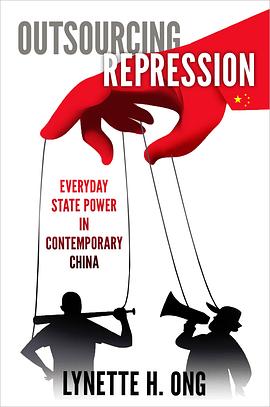Outsourcing Repression: Everyday State Power in Contemporary China
Douban
Lynette H. Ong
Sinossi
A compelling examination of a counterintuitive solution to China’s engagement of nonstate actors to coerce citizens into compliance while minimizing backlash against the state. How do states coerce citizens into compliance while simultaneously minimizing backlash? In Outsourcing Repression, Lynette H. Ong examines how the Chinese state engages nonstate actors, from violent street gangsters to nonviolent grassroots brokers, to coerce and mobilize the masses for state pursuits, while reducing costs and minimizing resistance. She draws on ethnographic research conducted annually from 2011 to 2019–the years from Hu Jintao to Xi Jinping, a unique and original event dataset, and a collection of government regulations in a study of everyday land grabs and housing demolition in China. Theorizing a counterintuitive form of repression that reduces resistance and backlash, Ong invites the reader to reimagine the new ground state power credibly occupies. Everyday state power is quotidian power acquired through society by penetrating nonstate territories and mobilizing the masses within. Ong uses China’s urbanization scheme as a window of observation to explain how the arguments can be generalized to other country contexts.
contents
List of Figures
List of Tables
Preface
Acknowledgments
Chapter 1: Bulldozers, Violent Thugs, and Nonviolent Brokers
Chapter 2: The Theory: State Power, Repression, and Implications for Development
Chapter 3: Outsourcing Violence: Everyday Repression via Thugs-for-Hire
Chapter 4: Case Studies: Thugs-for-Hire, Repression, and Mobilization
Chapter 5: Networks of State Infrastructural Power: Brokerage, State Penetration, and Mobilization
Chapter 6: Brokers in Harmonious Demolition: Mass Mobilizers, Mediators, and Huangniu
Chapter 7: Comparative Context: South Korea and India
Chapter 8: Conclusion
Appendices
Appendix A: Content Analysis of Government Regulations
Appendix B: List of Interviewees
Appendix C: Media-Sourced Event Dataset
Appendix D: Additional Tables & Graphs for Chapter 3
Notes
Bibliography